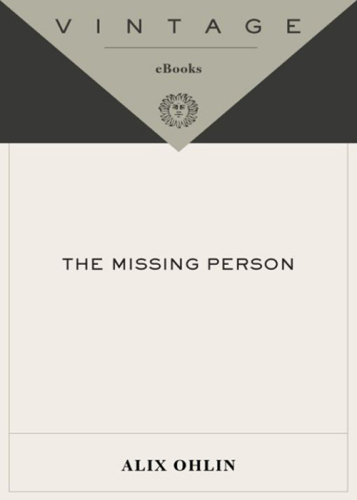
The Missing Person
- اطلاعات
- نقد و بررسی
- دیدگاه کاربران
نقد و بررسی

March 7, 2005
Although the title makes this sound like a mystery, it is a knowing and witty take on family ties, the politics of art and academia, and eco-terrorism. When art history graduate student Lynn Fleming finds out that Wylie, her younger brother, is missing—or at least hasn't been heard from and can't be located—Lynn returns home to Albuquerque to try to find him. Since she left to go to school in New York, she has become a confirmed New Yorker, and the thought of Albuquerque, "the capital of nowhere," makes her shudder, though she reluctantly appreciates Duke City's "scruffy charm." When someone in Albuquerque tells her, "I don't know anybody like you," she "almost choked in exasperation. New York, I wanted to say, was full of people exactly like me." Lynn finds Wylie easily and, in the process, strikes up a romance with Angus, one of Wylie's partners in eco-crime, a sunny and charming plumber whose darker side is gradually revealed. As the schemes of the group Angus leads get riskier and more dangerous, Lynn finds herself becoming involved with their actions and sympathizing with their philosophy, but not their methods or zeal. An interesting subplot about a Mew Mexican woman artist, whose work becomes fodder for Lynn's doctoral dissertation, is woven believably into the narrative. This promising debut is intelligent, insightful and often bitterly funny. Agent, Amy Williams at Collins McCormick. (May 6)
FYI:
A story by Ohlin will appear in
Best American Short Stories 2005.

February 15, 2005
In this first novel, Lynn Fleming, an art student in New York City, returns home to Albuquerque because her mother is worried about Lynn's brother, Wylie. Wylie has joined a group of activists and dropouts "who want to be living differently"; the squalor of their lifestyle, which includes monastic apartment furnishings and food pulled from dumpsters, reflects their rejection of society's materialism and consumerism. Even as Lynn attempts to understand Wylie and his group, she discovers that her mother launched an affair with a married neighbor before her father's death. She also notices two eerie paintings by a local artist among her father's possessions and conjures up a fantasy about the artist's association with her father. Wylie's group initiates a series of social protests that eventually escalates to trespassing, the destruction of property, and, finally, shutting down the electricity in Albuquerque with tragic consequences. Though the telling of the story is persuasive, with colorful descriptions of the arid landscape, the characters themselves are two-dimensional and lack any viable credibility. Not required for most collections. -David A. Beronä , Univ. of New Hampshire Lib., Durham
Copyright 2005 Library Journal, LLC Used with permission.

April 15, 2005
In Ohlin's mischievously smart and highly entertaining debut, a family struggles to realign itself around the negative space created by the unexpected death of the charmingly dissolute narrator's scientist father. Lynn fled Albuquerque to study art history in New York, but things aren't going too well. So when her obsessively neat travel-agent mother calls, worried sick over Lynn's brother, Wylie, Lynn agrees to come home for the summer, unaware of how bizarre things are. Lynn's mother is openly involved with a man whose wife is suffering a curiously stylish form of mental disability. Wylie, dismayed by Albuquerque's sprawl and wasteful water consumption, has hooked up with a group of dumpster-diving eco-warriors, including a sexy, nihilistic plumber, with whom Lynn gets erotically involved. She also happens upon the work of an unknown woman artist whose tragic story may save her floundering academic career. Electric with unusual and sharply delineated characters, madcap yet purposeful misadventures, ready irony, and incisive ecological insights, Ohlin's lithe and intriguing tragicomedy reveals the vulnerability of both the psyche and the earth.(Reprinted with permission of Booklist, copyright 2005, American Library Association.)




دیدگاه کاربران